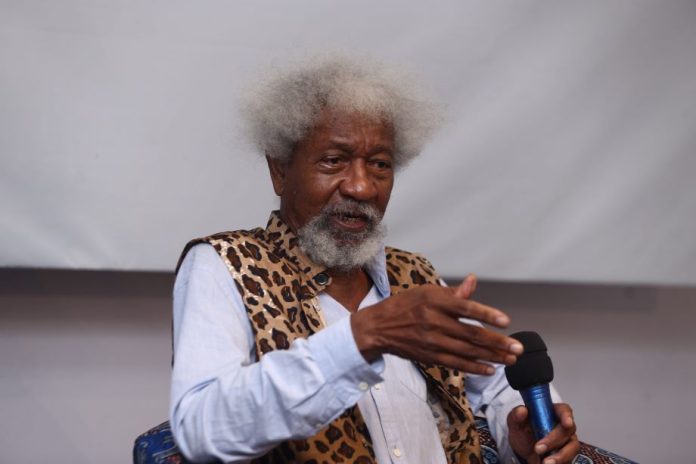Nobel Laureate. Professor Wole Soyinka, the first sub-Saharan African to receive the Nobel Prize in Literature, recently shared how the prestigious award has had unintended consequences, putting him at risk and intensifying his isolation.
Soyinka, who was honoured with the Nobel Prize in Literature in 1986 for his profound cultural perspective and the “poetic overtones” in his work, reflected on the personal impact of the accolade in a recent interview with CNN’s Larry Madowo.
He explained that his active role in Nigeria’s political sphere often clashed with the country’s leadership, further exposing him to danger.
Soyinka said, “I felt isolated when I won the Nobel Laureate and I felt much relieved when another African won it. I felt isolated because so much was demanded of me overnight. It was like your constituency was expanded simply because you’re from Africa. At the same time, especially in a society like ours, it exposes you more.
“So it exposes me also to very great danger because I refuse to back down on my beliefs and activities simply because I became a Nobel Laureate.”
Soyinka detailed how his refusal to abandon his beliefs put him at odds with Nigeria’s leadership, including the notorious military ruler, General Sani Abacha.
Recalling Abacha’s intense hostility toward him, Soyinka noted, “I always remind people that the most brutal dictator we ever had here, Sani Abacha, would have gone to his grave a happy man if he hanged a Nobel laureate. If he had been able to put on his CV that he hanged a Nobel laureate. As it was, he had to be content with hanging an activist and writer, Ken Saro Wiwa.”
During Abacha’s oppressive rule from 1993 to 1998, Soyinka managed a daring escape from Nigeria by crossing the Benin border on a motorcycle.
READ ALSO: Why I prefer traditional worship to Christianity, Islam — Wole Soyinka
Abacha then declared a death sentence against him in absentia. Soyinka only returned to Nigeria in 1999, after democracy was restored.
Reflecting on personal milestones, the 90-year-old laureate revealed that birthdays hold little appeal for him.
“Well, that’s the annoying thing. I don’t feel 90. I feel I just have taken birthdays for granted. “Usually, what I do on my birthdays is disappear into the forest. That is my normal way of spending birthdays,” he said.























